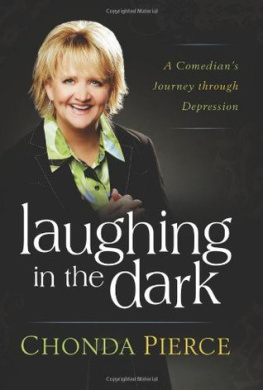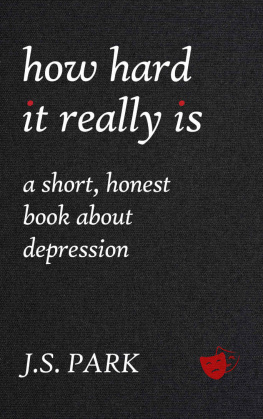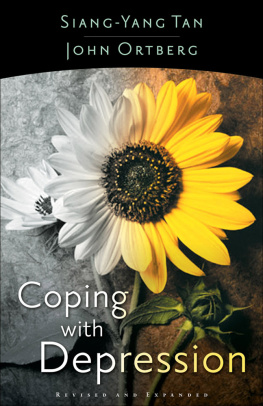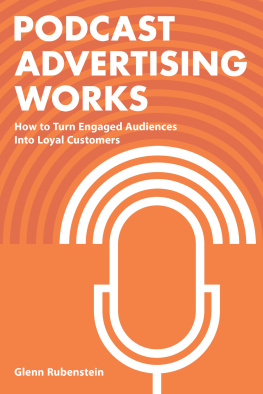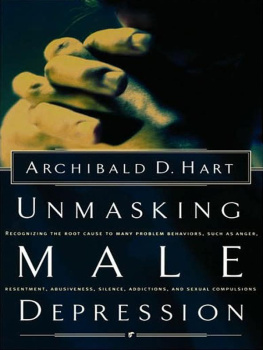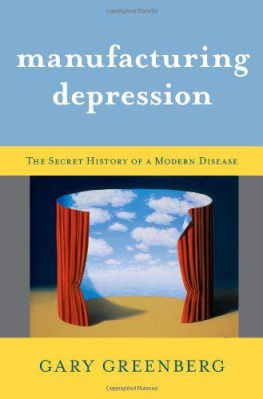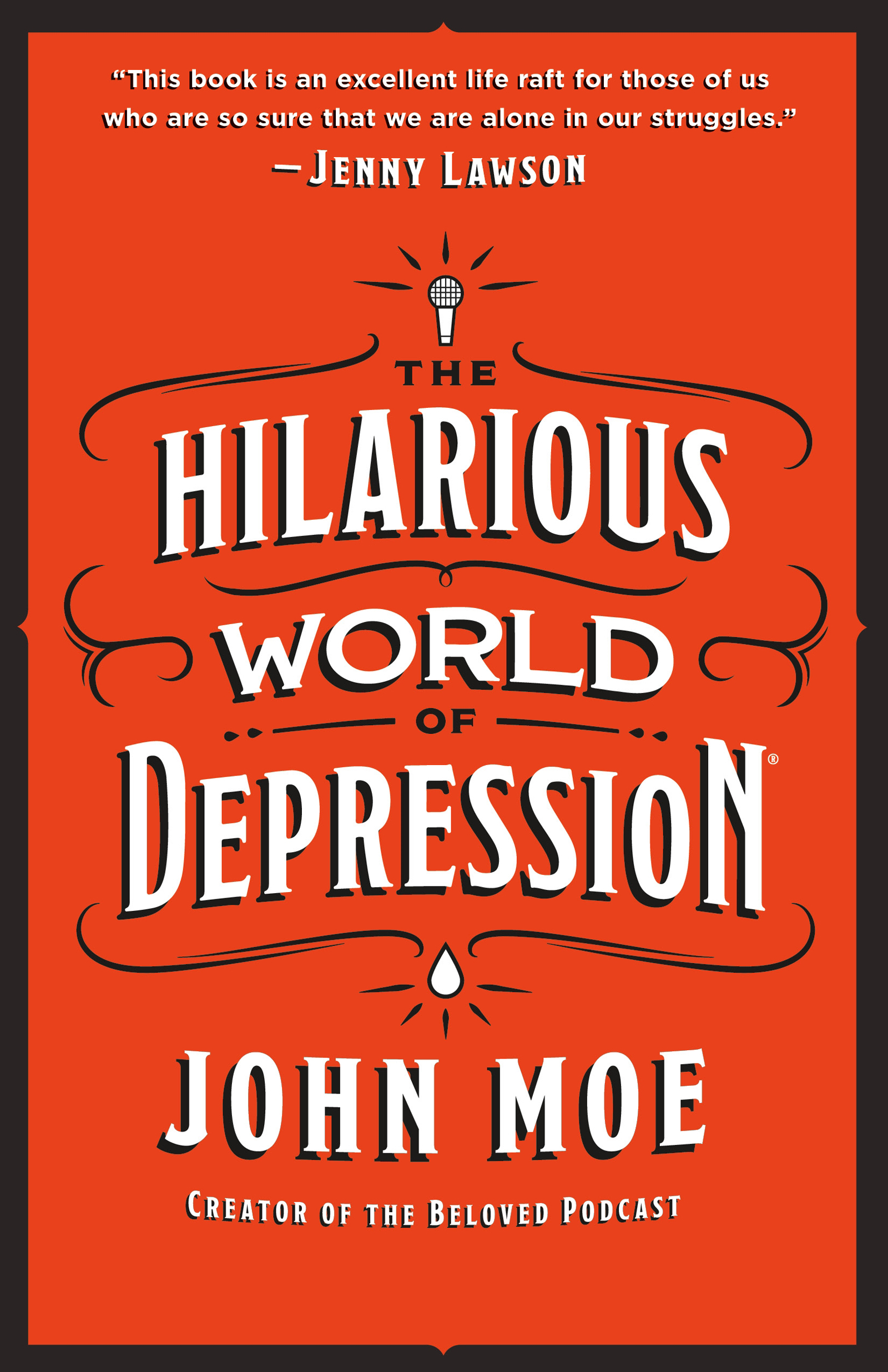The author and publisher have provided this e-book to you for your personal use only. You may not make this e-book publicly available in any way. Copyright infringement is against the law. If you believe the copy of this e-book you are reading infringes on the authors copyright, please notify the publisher at: us.macmillanusa.com/piracy.
I dont always read book prefaces, so I figured Id name mine something exciting to get you to check it out.
Ive got this illness that Ive been living with for decades. Its very serious, and it has caused significant damage to me and to those I love. The illness has negatively affected my physical health, my social skills, my moods, my self-image, and my outlook on the future. It is shapeless, colorless, and invisible. Though I am still alive, somehow, it is a potentially fatal condition, and lots of people die from it every year.
I am speaking, of course, about disco fever.
No, no, its depression! I was vaccinated against disco fever years ago.
Heres the weird part: even when I was in the darkest and most despairing times of my depression, I still found depression funny. It was funny to me that the illness distorted my view of the real world like a funhouse mirror. It was funny that I could be immobilized by something that had no basis in a broken bone or bacteria or any tangible factor. And when other people, especially comedians and writers, shared their experiences with depression and those experiences were resonant with my own, I could laugh because we were all getting fooled together. I laughed in the same way an audience laughs at a particularly good trick pulled off by a magician. Weve all been deceived, but we dont know how! I dont really yell that at magic shows. Maybe Ill start.
I created the podcast The Hilarious World of Depression to share the laughs and hope and human compassion that come from people talking to people about this traditionally dark topic. Ive interviewed dozens of comics, musicians, writers, and public figures who have dealt with depression, and Ive noticed a lot of things that come up again and again. Certain symptoms, distorted mindsets, and thought patterns recur in people from all walks of life who are facing off against this thing. And I often recognize what theyre saying because it matches what depression has placed in my own head over the course of my life.
With this book, Im putting it all together. This is my memoir and my illnesss biography. Its stories of how Ive been tortured by this thing but also found the absurd humor in it. Its the tale of how my illness might have gotten started, how it emerged, how it morphed and evolved over time, and, of course, how it keeps trying to kill me. Like a close friend who keeps trying to kill you. Theres what Ive learned from my own story, a story I dont talk about much on the show, and there are lots of contributions from THWoD guests. Theres more here than I could ever get into a podcast.
Im writing this book because books are sacred objects to me. My walls are lined with books Ive read that remain there despite my wifes strongest hints that perhaps it is time they moved along. There will be some things in herehopefully a lot of thingsthat resonate for you, either as a person dealing with depression or just as a citizen in a world filled with people doing so. With this book, I want to share with you both what Ive learned and what my friends, the celebrities, have learned so you can think about the book, go back to it, bookmark parts, highlight or underline parts, and lend it to your friends. If youre reading this on a phone or an e-book reader, find those features, but dont draw all over the screen with a Sharpie. If youre listening to the audiobook, go ahead and draw all over my mouth and throat with the Sharpie and then lend my mouth to your friends.
I want to share all this in one place because if we talk, things get better, and more people we love might stick around so we can love them more.
It was summer outside, bright and humid, and I was inside, sitting in a big poofy chair, ready to get into it with a new therapist.
Ill probably make jokes, I said to begin our first appointment. Its part of the way I talk. I like to make jokes about grim and grisly stuff as a way of facing it. The jokes, the laughs, thats oxygen for me. Maybe its deflection. Im not sure. I dont think so. You tell me.
Okay, Julie said.
This was the intake session, where you tell the therapist your story and include descriptions of family of origin, traumas, any occurrence of mental illness on your family tree, current life, health habits, and the reason you made the appointment that put you in the poofy chair.
Ive been depressed my whole life, but I only found out about twelve years ago. Ive been kind of faking my way through since childhood. Ive managed to stop getting worse. I want to be better.
Well, lets see if we can do something about that, said Julie. I liked her. Finding a therapist is a bit like dating. You might have to have some very boring or weird or tense meetings before you find someone you connect with. I was fortunate that this felt good right away. For various reasons, I had mostly had short-term relationships with therapists in the past. Just flings. Even a few one-session stands. I had never been able to make much of a commitment. My mind was a wild stallion that demanded to run free.
I continued, I have to say, though, I have a lot of reasons to think this wont work. And, yes, I know that might be the depression talking, but its also the only evidence Ive got. Its never gotten better before, really, so how could it? But yes, Im ready to try. I hope it works. I doubt it will.
Julie was a bit younger than me but old enough to have lived a life; she had probably experienced hardship, probably had someone close to her die, so I felt like she would know what I was talking about. She was cheerful but reserved, reminding me of someone I might have known in college who was in a sorority but also kind of knew how silly sororities were.
Whats really, I guess, dumb? About this? Is that Ive got this show I host. Its a podcast about depression, so I spend all day at work thinking about this stuff and a lot of time outside work talking about this stuff. I travel places to give speeches about this stuff. Right now, Im working on a book about this stuff, too. But it all came out of this podcast.
I know the podcast well, she said. You emailed me about it, but I already knew it.
I had emailed her but figured she wouldnt read the email or remember it if she had because Im dumb and worthless and everyone hates me. This didnt make me sad; its the way I understood the world to be.
I kept talking, like I do. But the thing about that show is that its mostly about other peoples depression. I feel like I understand other peoples depression pretty well, actually. I can quickly figure out what their issues are and draw information and stories out of them. Make connections they hadnt thought of. The thing is, I dont know what is going on with me. Its hard to see a skyscraper from inside the skyscraper.
My first appointment with Julie took place after two full seasons of The Hilarious World of Depression. By the time I talked to her, I had conducted a couple of years worth of deep and lengthy interviews with comedians, musicians, and writers who had dealt with clinical depression, or Clinny D as we had taken to calling it on the show. Id also spent a lot of time with my public radio colleagues discussing those interviews and how best to present them in order to inform, enlighten, and entertain our audience. This moment, here with Julie, was really the first time I had attempted to do anything to improve my own mental health, which had ranged from getting by to disastrous for most of my life. I had spent years exhorting people to get help and to believe that they could get better while never believing that about myself.



